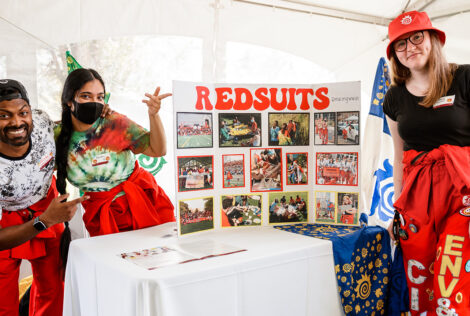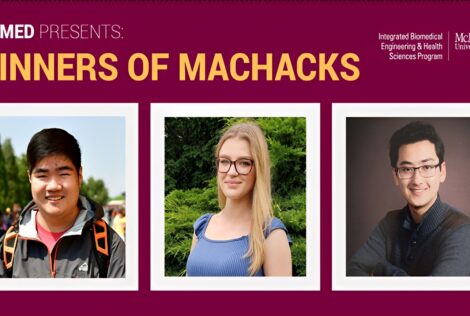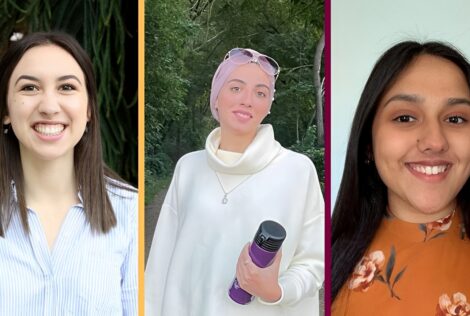
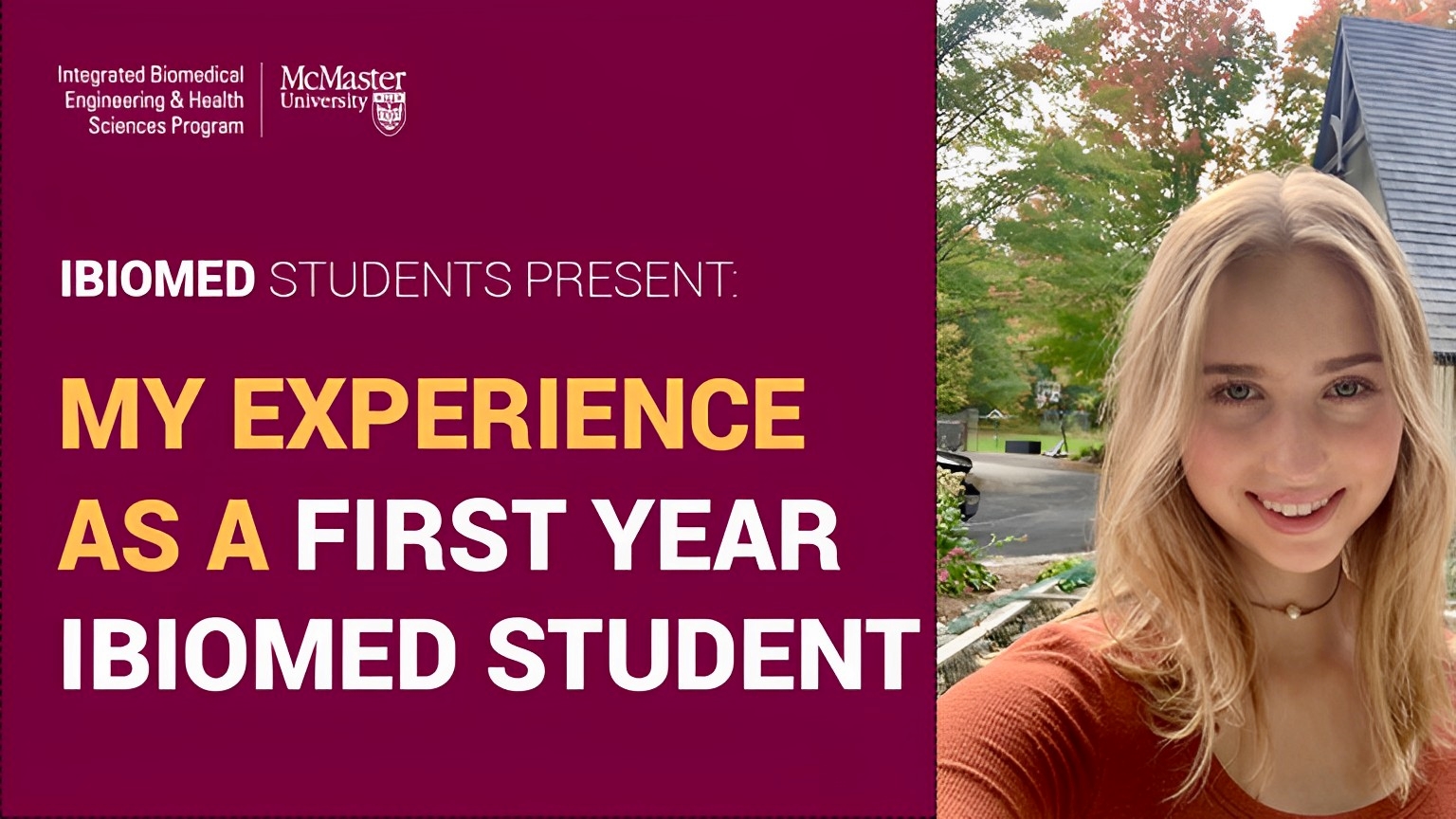
The students may have been masked, but you could see the welcome in their eyes. This was a new year. A new educational norm on an untread frontier. As we all have come to learn, pandemics bring with them the promise of uncertainty.
The blank canvas is a daunting terrain. Empty pages tend to hold as much promise as doubt. Sometimes, the only direction we have left to take is forward. For me, this step was through an archway. A tunnel lined with red jumpsuits and smiling faces. The students may have been masked, but you could see the welcome in their eyes. This was a new year. A new educational norm on an untread frontier. As we all have come to learn, pandemics bring with them the promise of uncertainty. From the start, I recognized the first-year experience for the class of ‘26 would be like no other. For the students of iBioMed, Welcome Week commenced a new chapter for all of us. Though there are still many months to go, I wouldn’t change a thing about this unconventional experience. The challenges of 2021 demanded innovation – and for us who chose iBioMed, the demand for innovation is a source for inspiration. Where others saw obstacles, we seized opportunity.
“Picture summer camp… but this time with the *joys* of midterms and exams.”
Everyone’s experiences this year share its differences. The context of living quarters, happenstance, and interest all leave their unique stamps. As a result, I can only give you a glance fully into my own experience. My year began by moving into Peter George Centre for Living and Learning. A building which made my friends marvel and my uncle, a McMaster alumnus, call me spoiled. If I were to go back to my past self, I would tell her she made the right choice by choosing to live on campus. The residence experience is claimed to be a rite of passage by many. As I now see, this is for good reason. Not only does residence ease the university transition by dissolving the worries of commutes and cooking (if you’re like me that is…), but it is an excellent opportunity to build friendships and expose yourself to people beyond your program. In a year ruled by Covid-19, residence was a social saving grace. When buildings were closed there were always my newly found floormates. Residence became my home away from home. A tapestry of personalities which resemble a second family. Picture summer camp… but this time with the *joys* of midterms and exams.
After a wild Welcome Week of deciphering between coloured jumpsuits and shouting upper years, I determined it seems the upper years enjoy this first week as much as we do. Looking back, the week was an excellent way to break the ice. I’ve lived away from home before but for many of my peers, this was the first time on their own. Although I’ve switched schools before, many others had spent most of their education with childhood friends. I considered it an adjustment period. I met a few fellow iBioMeds and everyone was incredibly kind, friendly, and fun. A promising start knowing this was just the beginning.
Then classes came. Professor Dr. McDonald, who every upper year told me about was actually there in person — not just on the cover of the program promotional pamphlet. I felt incredibly lucky to have many in-person experiences despite the conditions. It only took a week to find my way to classes, but some buildings, I’m looking at you Burke Science Building, will remain mazes I still can’t navigate my way through. The first thing which struck me about my classes, however, were not the incredible design studios rooms or engaging content, but rather the intimacy of it all. The way our program felt like some sort of family. The program size seems perfect, not so big you feel like a number, yet not too small that you instantly know everyone’s full name. Professors appeared to genuinely care about our wellbeing. Upper years were willing to help at every turn. Classmates genuinely appear to want as much success for everyone around them as they do themselves. I remember texting a friend back home at the beginning of a year, “This too good to be true. I haven’t met a single person in iBioMed who I haven’t Halle Lawson liked. Everyone is kind, yet also driven and resilient. We all want to succeed, but equally, we all want each other to succeed. I couldn’t have asked for a better community.”
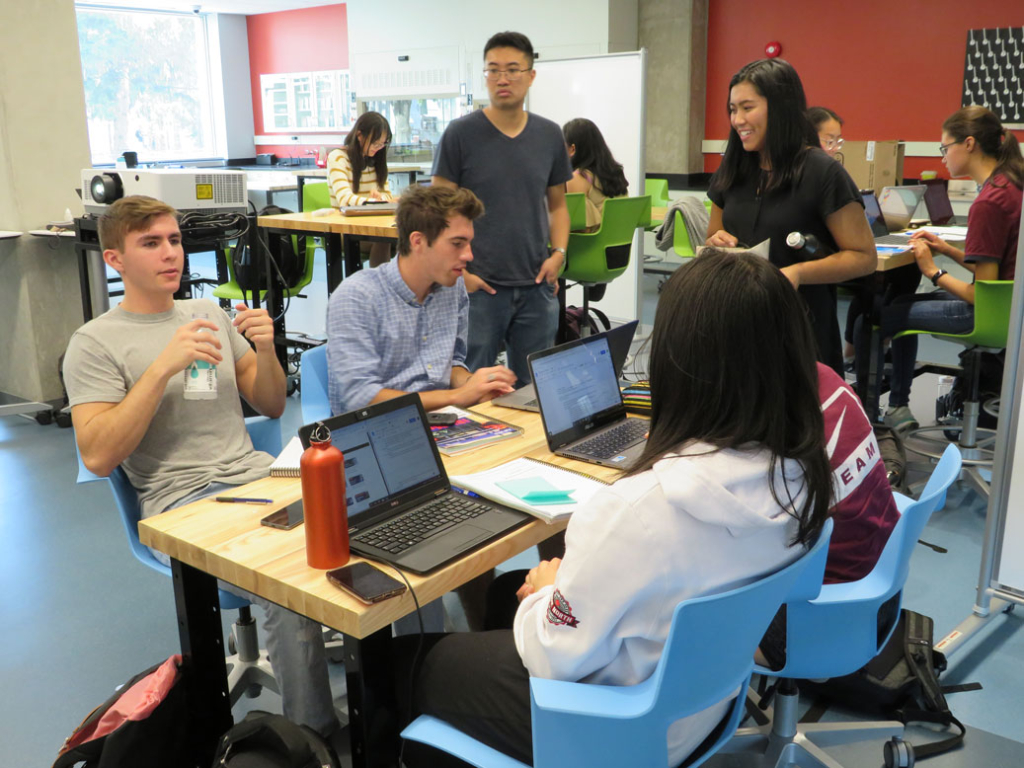
One cannot underestimate the importance of community. Or that of relationships in general. iBioMed is no walk in the park, but it is rewarding work. Even more so when you know you’re not walking it alone. In the past I have struggled to reach for help when I needed it. Yet here I felt comfortable to do so. When I reached for a hand, it was there. When others reached out to me, I had their back.
As the weeks progressed my interest in the content grew too. First year iBioMed students get to engage with some cool courses, which was a consideration of mine when I chose the program. I am openly biased towards IBEHS 1P10 Health Engineering Design Solutions. I know many others are too… and there’s no mystery as to why. As someone who loves art as much as they do science, this design course allows me to satisfy my creative tendencies. We are encouraged to think outside of the box to forge practical solutions. Likewise, we are taught the tools we need to transfer thoughts into a physical product. The design projects are undoubtedly the highlight of the course. The combination of skill and applied experience teaches lessons which I wasn’t aware a classroom could. For instance, in a project surrounding ostomy patients, our team’s most valuable resource didn’t come from the scholarly literature. Instead, it came from an ostomy patient herself. We had the chance to speak with an interviewer from Ostomy Canada and an Ostomate, both who provided the inspiration for our final design. It is opportunities like these which make me marvel at how incredible iBioMed can be.
Likewise, another project which hit close to home was one surrounding hip implant innovation. From diagnosis to the developed product, there were many lessons to be learnt along the way. The result, a showcase of innovative ideas I wouldn’t have believed we could have created even a few weeks before. The realism of the projects is also quite striking. My team’s case study patient was eerily similar to my sister, who was just given the same diagnosis as our patient the same day we received the study. This realism provides power. It reminds us that we have the power to make a measurable impact with our ideas. The world needs students like those in iBioMed.
One of the best decisions I made in my first year, aside from choosing iBioMed, was the decision to immerse myself within the school community. For most of my life I had been consumed by soccer tournaments, clubs, and competitions. I knew I wanted to continue this when I arrived at McMaster, I just wasn’t exactly sure where to start. That’s when I saw the opportunity to run for the McMaster Students Union First Year Council. After a few weeks of campaigning, I was elected as chair. So far, it’s been an incredible experience to advocate on behalf of first year students. We have many current projects in the works and have created a new health focus consultation committee in response to the toll we’ve noticed on everyone’s mental health this year. The university transition can be tough, let alone in a pandemic. We are working to make sure everyone has the best year possible – even amidst all the uncertainty.
“With every venture there are always missteps. Lessons to be learnt from inevitable mistakes. I have undoubtedly made a few too.”
With every venture there are always missteps. Lessons to be learnt from inevitable mistakes. I have undoubtedly made a few too. As someone who in the past had tendencies towards perfectionism, balancing the increased volume of work has required an adjustment period. Learning to be compassionate towards myself and my mistakes has been a process. Between battling procrastination, balancing work with play, and dealing with the fallout of a project which didn’t quite come together, I have come to learn some of the most important lessons aren’t taught in the classroom. They are still taught by iBioMed, but these are the lessons you must discover on your own time. They come in various shapes and forms. Yet, they are not failures. They can’t be if we’ve learned something from them. I’ve learnt that it’s okay to take time for yourself without feeling as though you need to be doing something else. That taking care of Halle Lawson yourself is sometimes the best way to do better on the upcoming test. I’ve learnt communication is a skill we can always build upon. We’re human, we’re inherently flawed, and that’s alright.
Though the past months have been a wild ride, I learnt more already than I could have ever imagined. The challenges of online classes, restrictions, and other hurdles have ingrained one of the most desirable lessons of all… resilience. We may not be sure what the rest of our year will look like. But here, at the halfway point, I am optimistic. I am optimistic because I know no matter what challenges come our way, we can handle it. We have professors, advisors, and classmates who are all vested in our success. We source strength from our community and draw upon the innovation in our nature. Each of us has overcome communal and personal storms; yet, here we are, still standing. I am beyond grateful to have chosen iBioMed. 2021 was a year of growth. I look forward to seeing how we overcome the waves yet to surface.
About the Author
Halle Lawson is a first-year iBioMed student who is passionate about the possibilities which lie at the intersection of health, engineering, and biotechnology. As MSU First Year Council Chair, Halle aims to elevate the student voice while producing measurable impact in the McMaster community. When not sporting her skills on the soccer field, Halle is an avid reader, writer, and mental health advocate.

